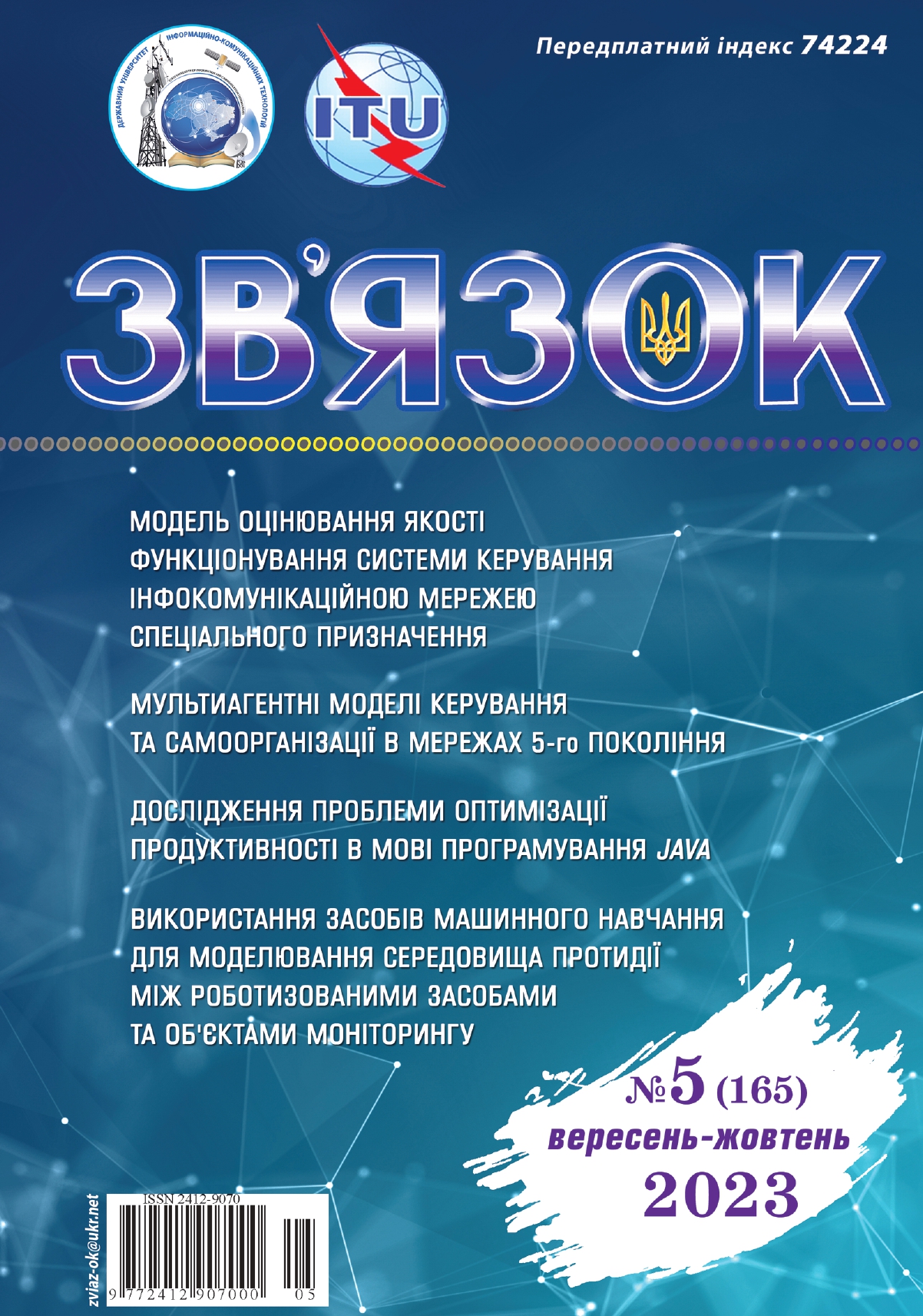Мультиагентні моделі керування та самоорганізації в мережах 5го покоління
DOI: 10.31673/2412-9070.2023.050914
Анотація
Розглянуто проблему керування телекомунікаційними мережами 5-го покоління (5G). Запропоновано використовувати мультиагентний підхід, який дає змогу забезпечити більшу адаптивність і гнучкість керування за умов динамічності і різноманітності 5G-мереж. Обґрунтовано потребу у використанні мультиагентних моделей для керування 5G-мережами. Оскільки традиційні централізовані системи керування стають неефективними за умов 5G, вони не можуть швидко реагувати на зміни в мережі. Мультиагентний підхід, навпаки, уможливлює розподілення керування мережею між кількома агентами, які здатні самостійно ухвалювати рішення за умов невизначеності.
Досліджено формалізовану модель мультиагентної системи керування 5G-мережами, утворену з таких компонентів:
• агенти, які представляють різні підсистеми мережі;
• ситуаційна мережа, що описує взаємодію агентів і мережі;
• критерії ефективності керування.
Використано реактивну стратегію для агентів, що дає змогу їм ухвалювати рішення на основі інформації про поточний стан мережі.
Ключові слова: мультиагентний підхід; адаптивність і гнучкість керування; мультиагентні системи (MAC); NMS (Network Management System).
Список використаної літератури
1. Principles for the Management of Next Generation Networks // ITU-T Recommendation M.3060/Y.2401. 2016.
2. Self-organizing multi-agent control models in NGN networks / A. Gavrilyuk, V. Kryukov, V. Osypenko, [et al.].
3. Methods of NGN network management / V. I. Gordiychuk, A. V. Havryliuk, V. V. Kryukov, O. V. Sazonov.
4. Method of the adaptive decoding of self-orthogonal codes in telecommunication / J. Boiko, I. Pyatin, O. Eromenko, M. Stepanov. 2020. 19. P. 1287–1296.
5. New Noise Immunity Coding Technique with Application of Triple Correlation and Bispectrum / J. Astola, K. Egiazarian, P. Molchanov [et al.] // Telecommunications and Radio Engineering. 2006. 65. P. 399–411.
6. Autocorrelative weak-value amplification and simulating the protocol under strong Gaussian noise / H. Jinghui, Xiang-Yun Hu, A. Dadae [et al.] // Physical Review A. 2022. 106.
7. Broadband transparent and flexible silver mesh for efficient electromagnetic interference shielding and high-quality free-space optical communication / Lei Qiyun, Luo Zhonglin, Zheng Xinyi [et al.] // Optical Materials Express. 2022. 13.

